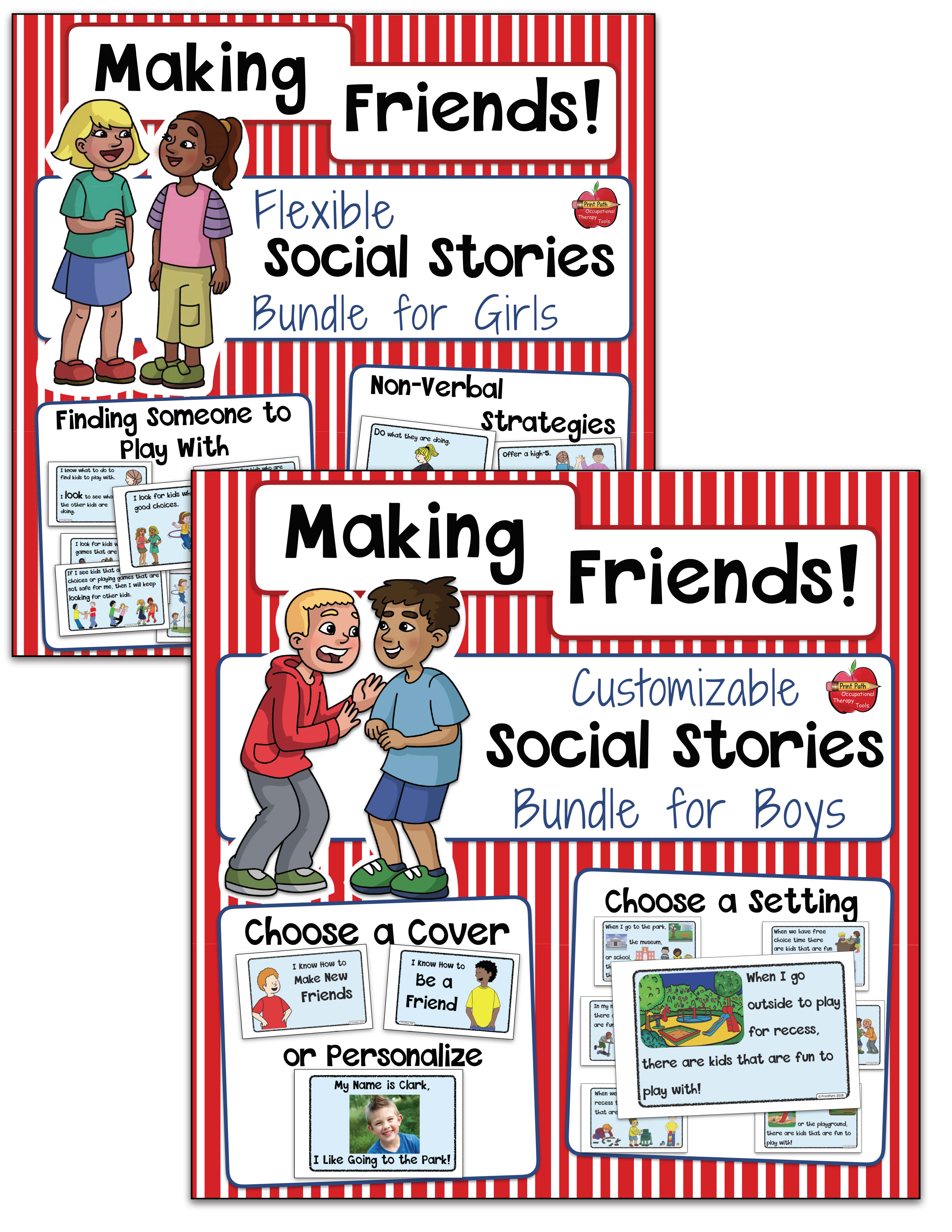Peer-Mediated Interventions for Students With Intellectual Disability

Does your school have peer-mediated interventions for students with intellectual disability? Peer-mediated interventions are an evidence-based approach for encouraging the inclusion, interactions, and shared activities of students with and without intellectual disabilities. There are different interventions such as: peer awareness training, peer support arrangements, peer networks, and peer tutoring. This type of intervention benefits the students with and without disabilities.
Benefits of Inclusion
Inclusion classrooms benefit students with disabilities in many different ways from social skills to academics. Some areas where students benefit are:
- increase in socialization
- new friendships
- peer role models
- increased access to the general curriculum
- increased generalization of skills
- and many more!

Making Friends Social Stories for Girls AND/OR Boys – Flexible and Editable
How Does Peer-Mediated Interventions Help?
One of the benefits of inclusion in peer role modeling. Peer-mediated interventions can help ALL students. The Journal of Remedial and Special Education published a review of the 53 studies on the impact on peers from peer-mediated interventions for students with intellectual disability (ID).
Although inclusion is increasing there are still some administrators, educators and parents who are hesitant. They may have concerns regarding the effects of peer mediated interventions that include students with intellectual disability. Previous research indicates that peer-mediated interventions are an evidence-based approach for improving social and learning outcomes for students with intellectual disability (ID) but their impact on participating peers has not been explored in depth.
Results of the Research Review on Peer-Mediated Interventions
The review of the research students with intellectual disabilities (ID) and their peers indicated that:
- interacting with students with ID has no adverse effects on peers’ academic achievement or engagement for peers from elementary through high school.
- peers’ engagement increased.
- peer-mediated interventions lead to positive changes in peers’ attitudes toward and peers’ expectations of their classmates with ID.
- peers often rated their interactions with students with ID as enjoyable, instilling a sense of pride in their participation and pride in the accomplishments of their partners with ID and expressed a desire to continue interacting with the student with ID.
For related service providers and other educators, informing school staff and parents on the benefits of peer to peer interventions can be helpful to explain why students benefit from group work. There are many reasons to support group work (ie modeling, turn taking, self regulation, etc.). This research can also help to support your clinical decision making to determine is a student would benefit from group work or individual work for school projects, assignments, related services, and more.
Reference: John M. Schaefer, Helen I. Cannella-Malone, and Erik W. Carter. The Place of Peers in Peer-Mediated Interventions for Students With Intellectual Disability. Remedial and Special Education November/December 2016 37: 345-356, first published on February 16, 2016 doi:10.1177/0741932516629220
Resource to Help Your Students
If you have students who need accommodations such as movement breaks, graphic organizers, technology, preferential seating, peer-mediated interventions, and more, then the Self-Advocacy for Students workbook can be your guide to help students advocate for their needs.
When it comes to helping students with their Individualized Education Program (IEP), it is critical to involve them in the process whenever possible even at a young age. Teaching students how to self-advocate for themselves promotes self-determination and independence. The Self-Advocacy for Students digital workbook can also easily be modified to use with Section 504 or regular education students. All students benefit from learning self-advocacy skills.




